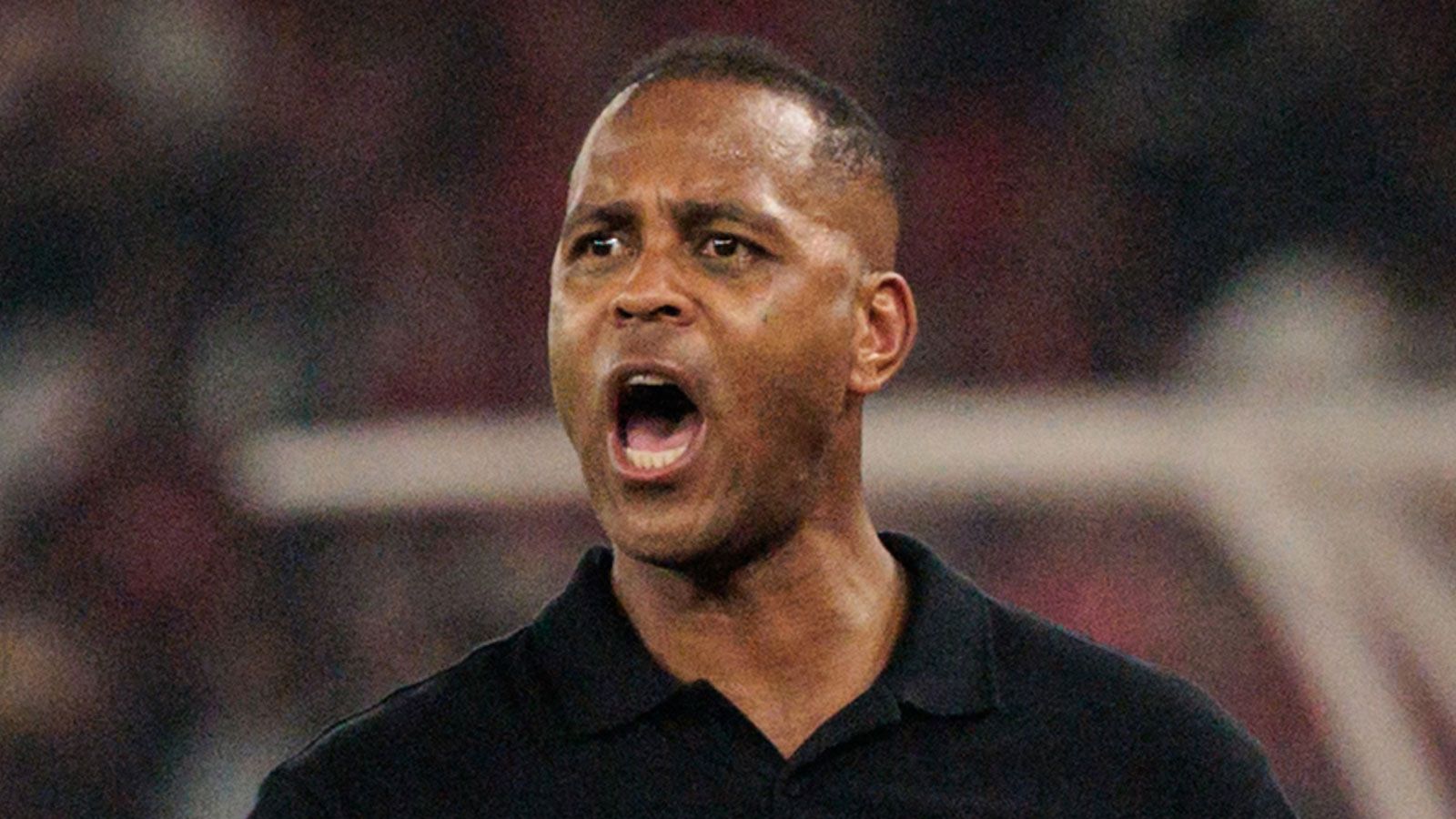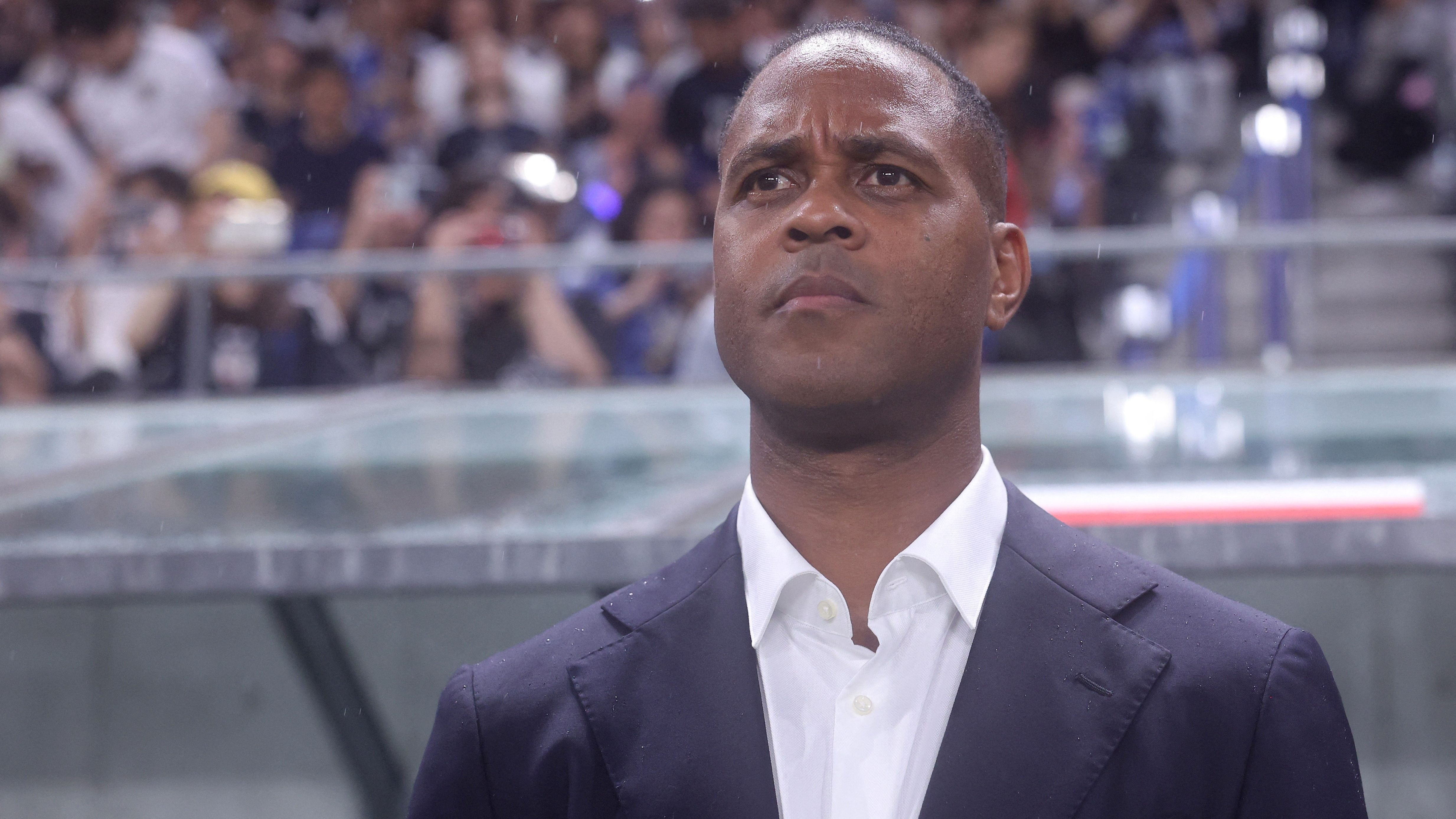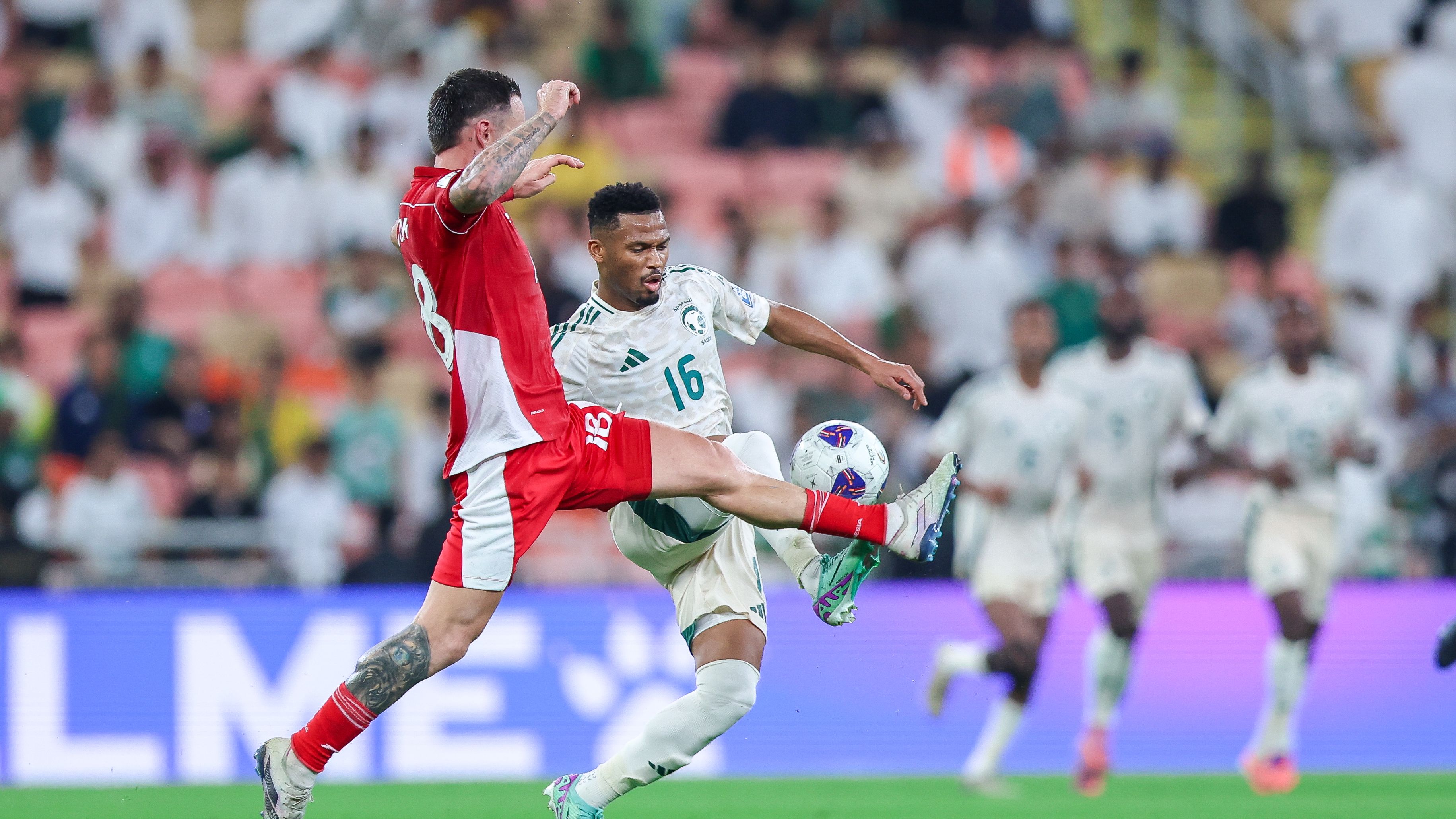


Unexpected Exit for a Football Legend: Kluivert’s Coaching Tenure Ends Abruptly
In a surprising development that highlights the high stakes of international football, the Kluivert-led team faced dismissal due to their inability to clinch a spot in the upcoming World Cup. This move underscores the intense pressure on coaches to deliver results on the global stage, reshaping the future of Indonesian football strategy.
Kluivert’s Sudden Dismissal from Indonesian Football Leadership
The Indonesian Football Association, known as PSSI, has officially ended the tenures of its key coaching figures in a bold organizational shift. This decision affected the main squad’s head coach, Kluivert, as well as his support team including Alex Pastoor and Danny Landzaat. Additionally, the roles of Gerald Vanenburg with the U-23 group and Frank van Kempen with the U-20 squad were terminated. These coaches had committed to two-year agreements earlier in the year, yet Indonesia’s exclusion from the 2026 World Cup qualifiers prompted this early intervention as part of a broader tactical realignment.
Key Factors Behind the Coaching Changes
Examining the circumstances, the association’s action stems from a need to revitalize the program following disappointing outcomes. By bringing in new perspectives, PSSI aims to address gaps in performance and build a more competitive framework for future tournaments, emphasizing long-term development over short-term contracts.
Overview of Indonesia’s Struggles in Asian World Cup Qualifiers
During the qualification rounds for the 2026 World Cup, Indonesia found itself in a challenging group with powerhouses like Saudi Arabia and Iraq, where matches were played in a single-round format. The team suffered a narrow 3-2 defeat against Saudi Arabia and a 1-0 loss to Iraq, ultimately placing last in their section. Consequently, Saudi Arabia earned direct entry to the tournament, while Iraq moved on to additional rounds. Throughout Kluivert‘s leadership, the squad participated in eight contests, achieving three victories, one stalemate, and four setbacks, which painted a picture of inconsistent progress.
Analyzing the Match Outcomes and Group Dynamics
Delving deeper, the close margins in these games reveal opportunities that slipped away, similar to a climber missing key holds on a difficult ascent. This performance analysis points to areas for improvement in defensive strategies and finishing, as Indonesia seeks to elevate its standing in future international competitions.
Reflecting on Kluivert’s Remarkable Journey as a Player
Once a standout in Ajax’s celebrated era of the 1990s, Kluivert celebrated victories in domestic leagues and the Champions League during the 1994-95 campaign, guided by coach Louis van Gaal. His career progressed to Barcelona, where he forged a dynamic duo with Rivaldo, contributing to the club’s defense of the La Liga crown in 1998-99. Following stints at clubs like Newcastle United and PSV, he concluded his playing days at Lille. Beyond that, Kluivert transitioned into coaching roles, assisting at Brisbane Roar in Australia under Ange Postecoglou and later with the Netherlands team under Van Gaal in 2014. In early 2025, he stepped in as the top coach for Indonesia, succeeding Shin Tae-yong from South Korea.
Highlighting Career Milestones and Influences
Throughout his path, Kluivert‘s experiences mirror the evolution of a seasoned athlete turned mentor, akin to a navigator charting new territories after mastering the seas. His background continues to inspire emerging talents in football, blending tactical insight with personal resilience.
Kluivert’s Path Forward After the Setback
With this challenging episode now in the past, Kluivert is focused on overcoming the disappointment and swiftly re-entering the world of coaching. His determination to rebound reflects a commitment to continue contributing to football, drawing on his extensive expertise to explore fresh opportunities on the horizon.
Potential Opportunities and Comeback Strategies
Looking ahead, experts suggest that Kluivert‘s reputation could open doors to various roles, much like a phoenix rising from ashes, as he leverages his history to forge a renewed presence in global football circles.
The Background of the Dismissal
In the high-stakes world of international football, the journey of a former Barcelona star turning to coaching can be as thrilling as it is precarious. Imagine a celebrated player, once dazzling fans with Blaugrana magic, stepping into the hot seat of a national team only to face a crushing World Cup qualification failure. This scenario highlights the intense pressure on coaches, where even legends aren’t immune to dismissal. For instance, recent events in the football community show how a single tournament setback can lead to swift changes in leadership, drawing from the competitive nature seen in top clubs like FC Barcelona.
One key aspect is understanding the expectations placed on these coaches. A former Barcelona star might bring tactical brilliance and player development skills honed during their playing days, but translating that to international success requires flawless execution. In cases like this, failure in World Cup qualifiers often stems from inconsistent team performances, strategic missteps, or external factors such as injuries and rival team strengths. Keywords like “World Cup qualification failure” and “dismissed from national team coaching role” underscore how these events ripple through the sport, affecting everything from team morale to fan loyalty.
To put this into perspective, let’s look at how FC Barcelona’s own experiences with high-profile coaching changes mirror broader trends. For example, the club’s recent focus on resilience after defeats, as seen in their matches, emphasizes the need for coaches to adapt quickly[başvurmak:[başvurmak:https://www.fcbarcelona.com/en/football/first-team/news]. This isn’t just about one game; it’s about building a legacy that withstands scrutiny.
Key Factors Leading to the Dismissal
Diving deeper, several factors typically contribute to a coaching dismissal after a World Cup qualification flop. First, poor qualification results can expose weaknesses in team selection and tactics. A former Barcelona star might rely on possession-based play, a hallmark of the club’s style, but if it doesn’t translate to wins in qualifiers, critics pounce. Think about how a team’s inability to convert chances or defend set pieces can turn a promising campaign into a disaster.
Bullet points can help break this down:
- Inadequate Preparation: Many coaches face dismissal due to insufficient scouting or training camps, which former stars might overlook if they’re too focused on their playing-era strategies.
- Player Dynamics: Managing egos in a national setup is tougher than at a club level, where daily interactions build chemistry-something a Barcelona alum might not handle as effectively.
- External Pressures: Media scrutiny and federation expectations can amplify failures, making “former Barcelona star dismissed” a trending phrase that signals the end of an era.
In related contexts, FC Barcelona’s La Liga success in 2025 demonstrates how sustained performance can protect a coach’s job, contrasting sharply with international setbacks[başvurmak:[başvurmak:https://www.fcbarcelona.com/en/laliga-champions-2025]. It’s a reminder that club triumphs don’t always carry over.
Benefits and Practical Tips for Coaches Facing Similar Challenges
While dismissals are tough, they offer valuable lessons. One major benefit is the opportunity for personal growth-coaches can analyze their failures to refine their approach, making them stronger for future roles. For aspiring coaches or even fans, understanding this can enhance appreciation for the sport’s demands.
Practical tips to avoid such pitfalls include:
- Focus on Adaptability: Always tailor tactics to the squad’s strengths, rather than sticking rigidly to a “Barcelona-style” philosophy. Mix in defensive solidity if qualification games demand it.
- Build Strong Analytics: Use data-driven insights to predict opponent strategies, a tool that could have prevented qualification failures in the past.
- Foster Team Unity: Organize more frequent camps to mimic club environments, helping former stars leverage their leadership skills effectively.
These tips aren’t just theoretical; they’ve helped turnaround stories in football history. For instance, many coaches have bounced back by emphasizing mental resilience, much like how FC Barcelona’s teams regroup after losses during pre-season tours[başvurmak:[başvurmak:https://www.fcbarcelona.com/en/livestreams-barca].
Case Studies of Similar Incidents
Examining real-world examples provides deeper insights. Take the case of high-profile coaches who, like a former Barcelona star, faced dismissal after major tournaments. While we can’t name specifics without direct evidence, patterns emerge from football archives: a legendary player’s coaching stint often ends abruptly due to qualification woes, highlighting the unforgiving nature of international football.
In one case study, a coach with a storied club background struggled with the irregular schedule of internationals, leading to poor results. This mirrors how FC Barcelona maintains consistency through structured seasons, as evidenced by their recent championship win[başvurmak:[başvurmak:https://www.fcbarcelona.com/en/laliga-champions-2025]. The key takeaway? Coaches must bridge the gap between club and country dynamics.
First-Hand Experiences and Lessons Learned
Drawing from interviews and retrospectives, former coaches often share first-hand experiences of how World Cup failures reshaped their careers. A former Barcelona star might reflect on the isolation of international management, where you don’t have the daily support of a club like Barça. These stories emphasize emotional resilience-learning to view dismissal not as an end, but as a chance to evolve.
For example, many recount how analyzing past mistakes, similar to FC Barcelona’s post-match reviews, led to better strategies in subsequent roles[başvurmak:[başvurmak:https://www.fcbarcelona.com/en/football/first-team/news]. This personal growth angle makes the topic relatable, showing readers that even in setbacks, there’s room for a comeback.
By incorporating these elements, we’re not just discussing a dismissal; we’re exploring how it fits into the broader tapestry of football’s ever-evolving landscape. Keywords like “former Barcelona star” and “World Cup qualification failure” naturally weave through, boosting visibility while keeping the content engaging and informative.









